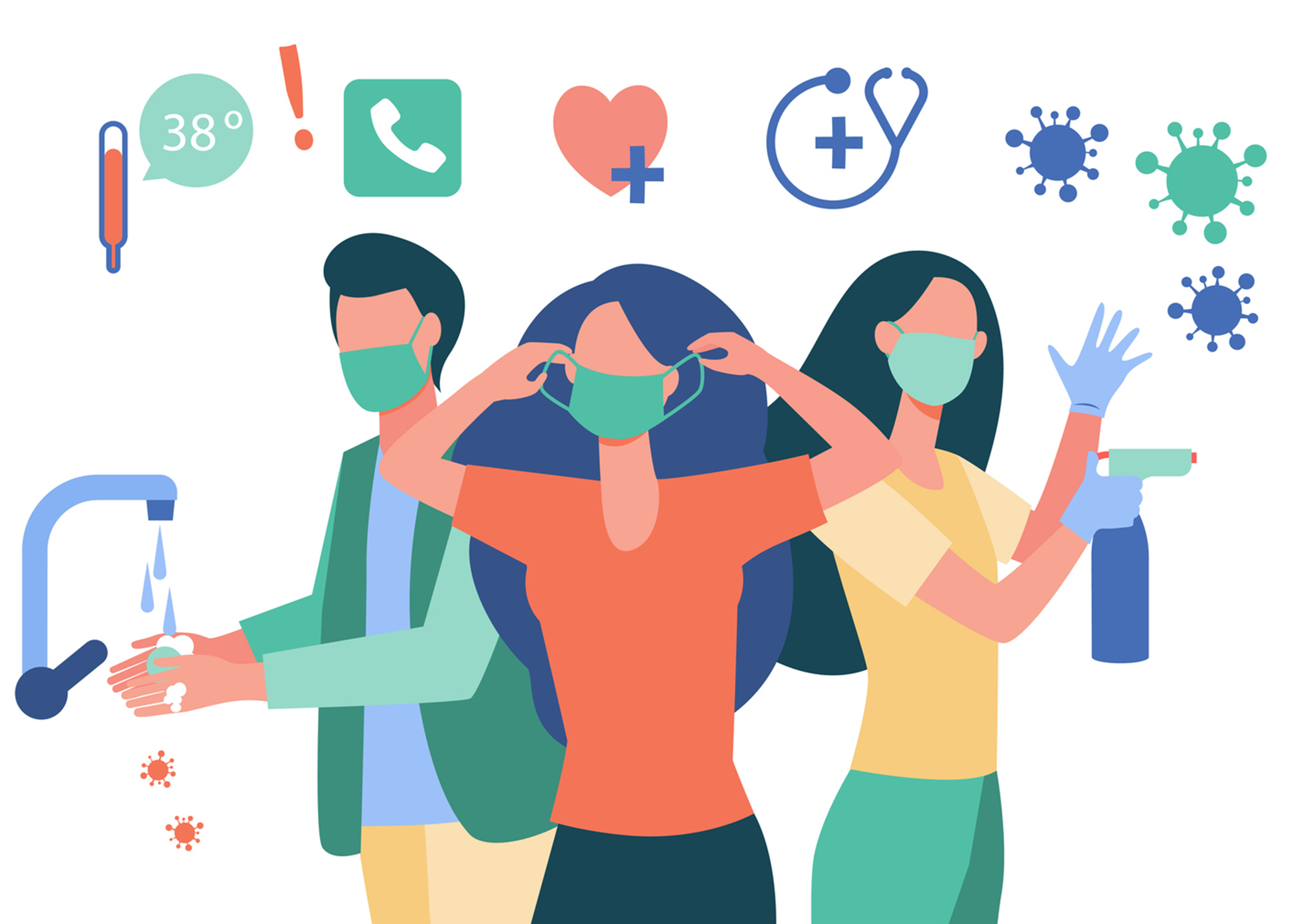Think of Protecting Your Online Privacy the Way You Protect Yourself from COVID-19

Ready to start protecting your digital privacy but not sure where to start? Take a page from the medical world and adapt some of the popular COVID-19 safety tips to your online practices.
With digital remote work here to stay, Americans are spending more and more time online. As we use, create, and put more of our personal data online, protecting digital privacy is more important than ever before.
Here are three tips that have been keeping you safe offline, that can ensure your safety online too:
1. Practice your password hygiene the way you wear a mask
“Password hygiene” is an overall pattern of behaviors designed to be the first line of defense against identity theft and privacy threats. Password hygiene is more than just a one-time action. A secure password is like wearing a mask in the COVID-19 era; it’s a repeated choice you make to protect yourself.
The first step of practicing password hygiene is also the first thing you do when creating any online account: pick secure passwords. I say “passwords,” plural, because it’s a good idea to have separate ones for each site or app you use. In the same way, it’s a good idea to clean cloth masks, or not use disposable masks beyond the recommended usage amounts, you shouldn’t depend on the same password, all the time. Using repeat passwords can give hackers access to every facet of your life: financial, medical, legal, and otherwise.
Secondly, pick a strong password with a mix of upper and lowercase letters, numbers, and special characters. It’s akin to the suggestion that a good mask should have three layers: cotton, polypropylene, and polyester. Some experts suggest using a password phrase of several words (a passphrase), rather than just a single word. Also, avoid keeping your passwords in a file on your computer. If your computer is hacked, all of those will be available to the hacker.
Lastly, change your passwords on a regular schedule to keep your data secure, in the same way you wash cloth masks, or discard disposable masks. To keep track of those passwords, a password manager can be a big help. In addition, when you pick a password, make sure it can’t be easily guessed, like your birthday or your kids’ names. If you use any piece of information about yourself that can be found online (including social media), it’s probably a poor password.
2. Monitor your online and mobile behaviors the same way you monitor real-world behaviors
Social media can be a major source of risk. Watch your behaviors online with the same caution you watch your real-world behaviors. Too often people share personal information online on these accounts, like family members’ names, birthdays and even addresses. Cyber criminals’ attempts to hack your information are as ubiquitous as germs in the real world. COVID has taught us to adapt our behaviors, from avoiding shaking hands, to social distancing, to regularly using hand sanitizer.
In the same way a shopping cart handle might be a “backdoor” for COVID to invade, the apps you download could also be backdoors to your personal information. Most apps track every action you take in their program. They collect a bewildering amount of data about you—everything from blood pressure to menstrual cycle. Be sure to read the terms and conditions of any app before you download it, with the same wariness you’d approach any frequently touched public surface. Once you download an app, check the privacy settings – on the app and in your phone’s settings. You may be able to cut down the amount of information the app’s maker collects about you.
While it can be annoying to download new updates, they’re a key way to ensure your privacy’s safety. Make it a point to download new updates whenever you get the opportunity, with the same regularity you sanitize or wash your hands.
3. Avoid phishing schemes the same way you avoid crowded events
Phishing – fake emails that “fish” for your information and ask you to click on links they send – is a major means of online identity theft. It’s also a major way that hackers gain access to companies’ sensitive data. All it takes is for one employee to click on a phishing email, and hackers can gain access to their corporation’s system and proprietary information. Phishing schemes are the super-spreaders of the hacking world.
Be wary of clicking on any link that’s emailed from a source you don’t recognize. Don’t even open an email that looks suspicious. Phishing scams often pretend to be people you know or businesses like your bank – but something will often be “off” about the layout, the logo, or the text. If something feels “off” about an email, approach it with the same caution you’d approach a bar, restaurant, or festival where numerous unmasked people congregated closely.
Phishers often take advantage of people’s anxiety and fear by creating a sense of urgency with a quick deadline, another way to create anxiety? Claiming to be an urgent issue with your bank, hospital, or even a government agency like the IRS. If you aren’t sure if the email is legitimate, call your bank or the institution sending the email to see if the request is legitimate.
As the amount of data generated and monitored by consumers and businesses continues to grow, so too will the chances hackers have to steal your important private data. Consider your online health just as important as your physical health, and you’ll be far safer.
About IDX
We're your proven partner in digital privacy protection with our evolving suite of privacy and identity products.
